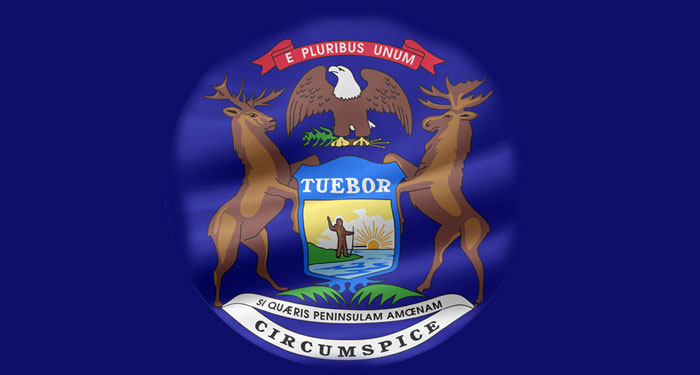
- Does Michigan Tax Gambling Winnings
- Michigan Income Tax Gambling Winnings
- Does Michigan Tax Casino Winnings
Paying any tax stings, to be sure, but it's important that you know how and when the taxman might come when you visit one of the Great Lake State's casinos. So, here is a guide for how taxes apply to Michigan gambling. Are gambling winnings taxable in Michigan? Throwing money around in a casino rarely seems like an official transaction. Without using the session method, I potentially must pay federal tax on $2,000, unless I itemize. I may be able to use $2,000 as an itemized deduction if I am eligible to file Schedule A. Either way, I'm still paying tax on winnings even though I walked away with less money than I started with. I would also have to pay Michigan tax on $2,000.
State and federal tax codes are replete with provisions that require a taxpayer who wins in a casino, racetrack, state lottery, or through other gaming activities to report those winnings as income (see BACKGROUND INFORMATION). In general, Michigan residents are required to pay taxes on all gaming winnings won in the state, while nonresidents are only required to pay taxes on winnings from the state lottery. Some people believe that the state Income Tax Act could be made more equitable by providing that nonresidents pay taxes on all gambling winnings in the state, just as is the case for Michigan residents. Such a proposal is part of a series of amendments to state tax laws proposed by the Granholm Administration as part of its budget for the 2003-2004 fiscal year.
THE CONTENT OF THE BILL:
The bill would amend the Income Tax Act to include in the taxable income of nonresidents casino winnings and winnings from pari-mutuel wagering at licensed horse racing meetings. The bill would apply to proceeds paid after October 1, 2003.
The bill would apply to casinos regulated under the Michigan Gaming Control and Revenue Act (such as those in Detroit) and the tribal casinos where gaming is conducted under the federal Indian Gaming Regulatory Act. The horse racing meetings would be those licensed under the Horse Racing Law of 1995.
MCL 206.110
BACKGROUND INFORMATION:
Under the federal Internal Revenue Code winnings from pari-mutuel wagering at horse or dog racetracks, lotteries, bingo, keno, slot machines, and other gaming activities are considered to be taxable income and subject to withholding and reporting requirements (found on the IRS form W-2G). Gambling winnings for games other than keno, bingo, and slot machines are reportable if the amount won (less the amount of the wager) is $600 or more and at least 300 times the amount of the wager. Winnings from keno games are reportable if the winnings (less the amount of the wager) are $1500 or more, and winnings from bingo games or slot machines are reportable if they exceed $1,200 (not less the amount wagered).

Under the State Income Tax Act, 'income' means federal adjusted gross income (as defined in the federal Internal Revenue Code) with other adjustments. Public Act 1 of 1977 amended the definition of income to specifically exclude the first $300 received from awards, prizes, lottery, bingo, or other gambling winnings. Over the years the Income Tax Act has been amended to include winnings from the state lottery as taxable income. Public Act 279 of 1988 amended the Income Tax Act to include lottery winnings as taxable income. Public Act 484 of 1996 amended the act to specify that state lottery winnings would be taxable for nonresidents.
According to committee testimony offered by the Department of Treasury, for the bill to truly be effective, House Bill 4561 would also have to be enacted. That bill requires casino licensees regulated under the Michigan Gaming Revenue and Control Act and race meeting track licensees under the Horse Racing Law of 1995 to withhold a tax on winnings based on the amount of winnings reportable under the federal Internal Revenue Code and the state income tax rate.
FISCAL IMPLICATIONS:
The House Fiscal Agency cites Department of Treasury estimates that the bill will increase income tax revenue by slightly more than $9 million in fiscal year 2003-2004. Of that, about $3.2 million would go the School Aid Fund, with the remainder to the General Fund. (HFA analysis dated 4-28-03)
ARGUMENTS:
For:
Michigan residents pay state income tax on gambling winnings, but nonresidents do not (other than winnings from the state lottery). This differential treatment hardly seems fair. The Income Tax Act should be amended, at least with regard to gambling winnings, so that Michigan residents and nonresidents are treated in an equitable manner.
Against:

The bill has the potential to put Michigan-based casinos and horse racetracks (a group that is already struggling) at a competitive disadvantage with nearby facilities in other states and provinces that do not tax the winnings of nonresidents. As such, gamblers may choose to take their business to areas that provide a more 'gambler friendly' tax climate.
POSITIONS:
The Department of Treasury supports the bill. (4-30-03)
Representatives of the Michigan Education Association, Michigan Association of School Boards, Northern Michigan Schools Legislative Association, Oakland Schools, and Michigan Federation of Teachers and School Related Personnel indicated their support for the bill. (4-30-03)
The Michigan Chamber of Commerce is neutral on the bill. (4-30-03)
The Michigan Manufacturers Association is neutral on the bill. (4-30-03)
The Detroit Metro Convention and Visitors Bureau oppose the bill. (4-30-03)

- Does Michigan Tax Gambling Winnings
- Michigan Income Tax Gambling Winnings
- Does Michigan Tax Casino Winnings
Paying any tax stings, to be sure, but it's important that you know how and when the taxman might come when you visit one of the Great Lake State's casinos. So, here is a guide for how taxes apply to Michigan gambling. Are gambling winnings taxable in Michigan? Throwing money around in a casino rarely seems like an official transaction. Without using the session method, I potentially must pay federal tax on $2,000, unless I itemize. I may be able to use $2,000 as an itemized deduction if I am eligible to file Schedule A. Either way, I'm still paying tax on winnings even though I walked away with less money than I started with. I would also have to pay Michigan tax on $2,000.
State and federal tax codes are replete with provisions that require a taxpayer who wins in a casino, racetrack, state lottery, or through other gaming activities to report those winnings as income (see BACKGROUND INFORMATION). In general, Michigan residents are required to pay taxes on all gaming winnings won in the state, while nonresidents are only required to pay taxes on winnings from the state lottery. Some people believe that the state Income Tax Act could be made more equitable by providing that nonresidents pay taxes on all gambling winnings in the state, just as is the case for Michigan residents. Such a proposal is part of a series of amendments to state tax laws proposed by the Granholm Administration as part of its budget for the 2003-2004 fiscal year.
THE CONTENT OF THE BILL:
The bill would amend the Income Tax Act to include in the taxable income of nonresidents casino winnings and winnings from pari-mutuel wagering at licensed horse racing meetings. The bill would apply to proceeds paid after October 1, 2003.
The bill would apply to casinos regulated under the Michigan Gaming Control and Revenue Act (such as those in Detroit) and the tribal casinos where gaming is conducted under the federal Indian Gaming Regulatory Act. The horse racing meetings would be those licensed under the Horse Racing Law of 1995.
MCL 206.110
BACKGROUND INFORMATION:
Under the federal Internal Revenue Code winnings from pari-mutuel wagering at horse or dog racetracks, lotteries, bingo, keno, slot machines, and other gaming activities are considered to be taxable income and subject to withholding and reporting requirements (found on the IRS form W-2G). Gambling winnings for games other than keno, bingo, and slot machines are reportable if the amount won (less the amount of the wager) is $600 or more and at least 300 times the amount of the wager. Winnings from keno games are reportable if the winnings (less the amount of the wager) are $1500 or more, and winnings from bingo games or slot machines are reportable if they exceed $1,200 (not less the amount wagered).
Under the State Income Tax Act, 'income' means federal adjusted gross income (as defined in the federal Internal Revenue Code) with other adjustments. Public Act 1 of 1977 amended the definition of income to specifically exclude the first $300 received from awards, prizes, lottery, bingo, or other gambling winnings. Over the years the Income Tax Act has been amended to include winnings from the state lottery as taxable income. Public Act 279 of 1988 amended the Income Tax Act to include lottery winnings as taxable income. Public Act 484 of 1996 amended the act to specify that state lottery winnings would be taxable for nonresidents.
According to committee testimony offered by the Department of Treasury, for the bill to truly be effective, House Bill 4561 would also have to be enacted. That bill requires casino licensees regulated under the Michigan Gaming Revenue and Control Act and race meeting track licensees under the Horse Racing Law of 1995 to withhold a tax on winnings based on the amount of winnings reportable under the federal Internal Revenue Code and the state income tax rate.
FISCAL IMPLICATIONS:
The House Fiscal Agency cites Department of Treasury estimates that the bill will increase income tax revenue by slightly more than $9 million in fiscal year 2003-2004. Of that, about $3.2 million would go the School Aid Fund, with the remainder to the General Fund. (HFA analysis dated 4-28-03)
ARGUMENTS:
For:
Michigan residents pay state income tax on gambling winnings, but nonresidents do not (other than winnings from the state lottery). This differential treatment hardly seems fair. The Income Tax Act should be amended, at least with regard to gambling winnings, so that Michigan residents and nonresidents are treated in an equitable manner.
Against:
The bill has the potential to put Michigan-based casinos and horse racetracks (a group that is already struggling) at a competitive disadvantage with nearby facilities in other states and provinces that do not tax the winnings of nonresidents. As such, gamblers may choose to take their business to areas that provide a more 'gambler friendly' tax climate.
POSITIONS:
The Department of Treasury supports the bill. (4-30-03)
Representatives of the Michigan Education Association, Michigan Association of School Boards, Northern Michigan Schools Legislative Association, Oakland Schools, and Michigan Federation of Teachers and School Related Personnel indicated their support for the bill. (4-30-03)
The Michigan Chamber of Commerce is neutral on the bill. (4-30-03)
The Michigan Manufacturers Association is neutral on the bill. (4-30-03)
The Detroit Metro Convention and Visitors Bureau oppose the bill. (4-30-03)
Does Michigan Tax Gambling Winnings
Analyst: M. Wolf
Michigan Income Tax Gambling Winnings
______________________________________________________
Does Michigan Tax Casino Winnings
This analysis was prepared by nonpartisan House staff for use by House members in their deliberations, and does not constitute an official statement of legislative intent.

